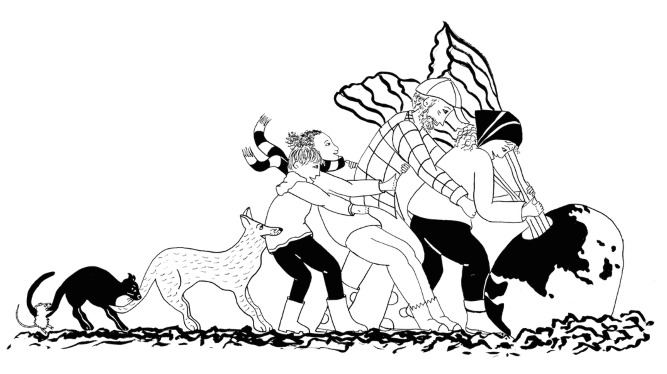Degrowth in the Nordic contexts
The Nordic countries are often treated as ideal models, rather than as actual countries facing their own sets of challenges. With their highly popular welfare states, they are often used to illustrate that economic growth can be coupled with both high levels of taxation and substantive redistribution policies, that low levels of inequality lead to a happy and healthy population, and that economic growth and greenhouse gas emissions can be decoupled. However, the Nordic countries are still largely fossil-reliant and face challenges similar to other European countries, with an ageing population, pollution, increased xenophobia, the upsurge of populist right-wing parties, fear of terrorist attacks and the consequences of plenty of neoliberal reforms.
Nevertheless, in the Nordic countries, the governments and the state apparatuses also tend to enjoy high levels of trust from the public. Social democratic governments have, over the years, reinforced this by implementing several universal welfare reforms and policies. Along with a historically strong trade union movement, this has meant that NGOs and other grassroots movements were unable to gain much support and so exert influence on reforms and policies. Even though this has slowly started to change during the past twenty years or so – partly in response to neoliberal reforms, partly due to changing patterns in political mobilisation – degrowth, like other grassroots social movements, must learn how to navigate and mobilise in state-centered countries.
Sweden, together with Norway and Finland, are also the homes to the Sami people, indigenous people with their own language, culture and traditions. Living in the Arctic area of Sápmi, they have historically had different livelihoods, including sheep herding, fur trapping and semi-nomadic reindeer ranger herding. The Swedish state has changed its policy over the years: from originally pursuing forced assimilation measures, it began to recognise the distinct Sami language and culture in the late 1980s. The ILO indigenous Tribal Peoples Convention has not been adopted, however, and the same holds for Finland. Rich in natural resources, the Arctic region is continuously targeted for extractivism and its expansion, which brings up a lot of environmental justice issues.
Thus, in the Nordic contexts, it is key to address how grassroots social movements can navigate and mobilise in state-centered countries and have a broad, inclusive and engaging discussion on the relations between degrowth, indigenous worldviews and the welfare state. This has started at the 6th International Degrowth Conference and is a continuous issue for us at the Institute for degrowth studies.

